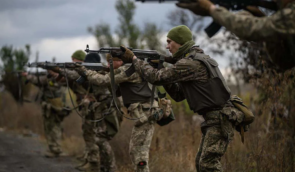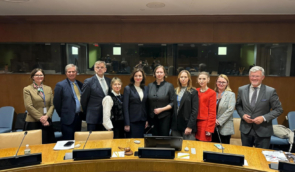How Crimean Tatars continue their fight under occupation: the book “My Deportation” by political prisoner Osman Arifmemetov was presented at the Book Country Festival.
On 26 September 2025, as part of the Book Country festival at VDNG, a discussion “How Crimean Tatars continue to fight under occupation” took place, along with a presentation of the book by citizen journalist and political prisoner Osman Arifmemetov, “My deportation. Reports of a Crimean journalist written in detention”.
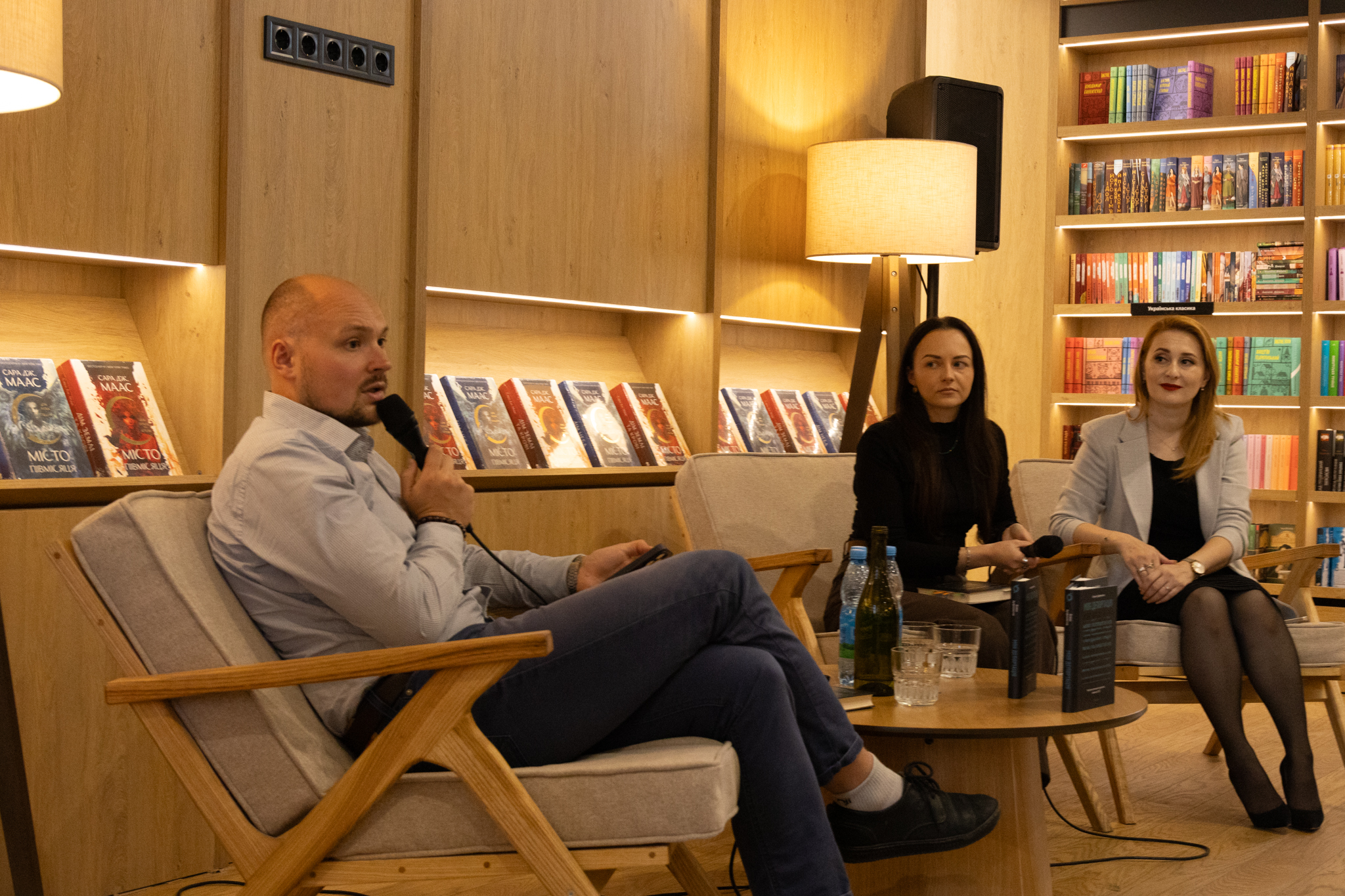 Yevhen Bondarenko, Viktoriia Nesterenko, Hulnara Abdulaieva. Photo credit: Mission of the President in the Autonomous Republic of Crimea
Yevhen Bondarenko, Viktoriia Nesterenko, Hulnara Abdulaieva. Photo credit: Mission of the President in the Autonomous Republic of CrimeaOsman Arifmemetov is a mathematician by education, one of the first citizen journalists in Crimea and an activist of Crimean Solidarity. Since 2015, he has been covering illegal searches and fabricated trials in occupied Crimea. In 2019, Arifmemetov was illegally imprisoned in Russia on charges of “terrorist activity”. He was initially held in Minusinsk prison in the Krasnoyarsk Krai, and has now been transferred to the Orenburg region.
The book includes reports written in various pre-trial detention centres and colonies, from Simferopol to Minusinsk. In them, the author describes prison life, the abuse of prisoners and the absurdity of the Russian judicial system. Despite the harsh conditions, his texts retain faith, irony and hope.
The discussion was attended by human rights defender and Project Manager of the Human Rights Centre ZMINA, Viktoriia Nesterenko, and writer and historian Hulnara Abdulaieva. The discussion was moderated by Yevhen Bondarenko, Head of the Information Support Department of the Mission of the President of Ukraine in the Autonomous Republic of Crimea, who opened the discussion by reminding the audience that Russia is currently illegally holding 222 Ukrainian political prisoners, including 133 representatives of the indigenous peoples of Crimea. He stressed that the ethnically motivated persecution of Crimean Tatars is a continuation of the Russian state’s policy aimed at destroying the identity of peoples who resist.
“This is absurd, because when Crimean Tatars, the indigenous population who know everything about the soil, water sources and nature on the peninsula, are expelled from Crimea, the land deteriorates. Crimea is gradually dying, and this is the fault of the Russians,” said Bondarenko.
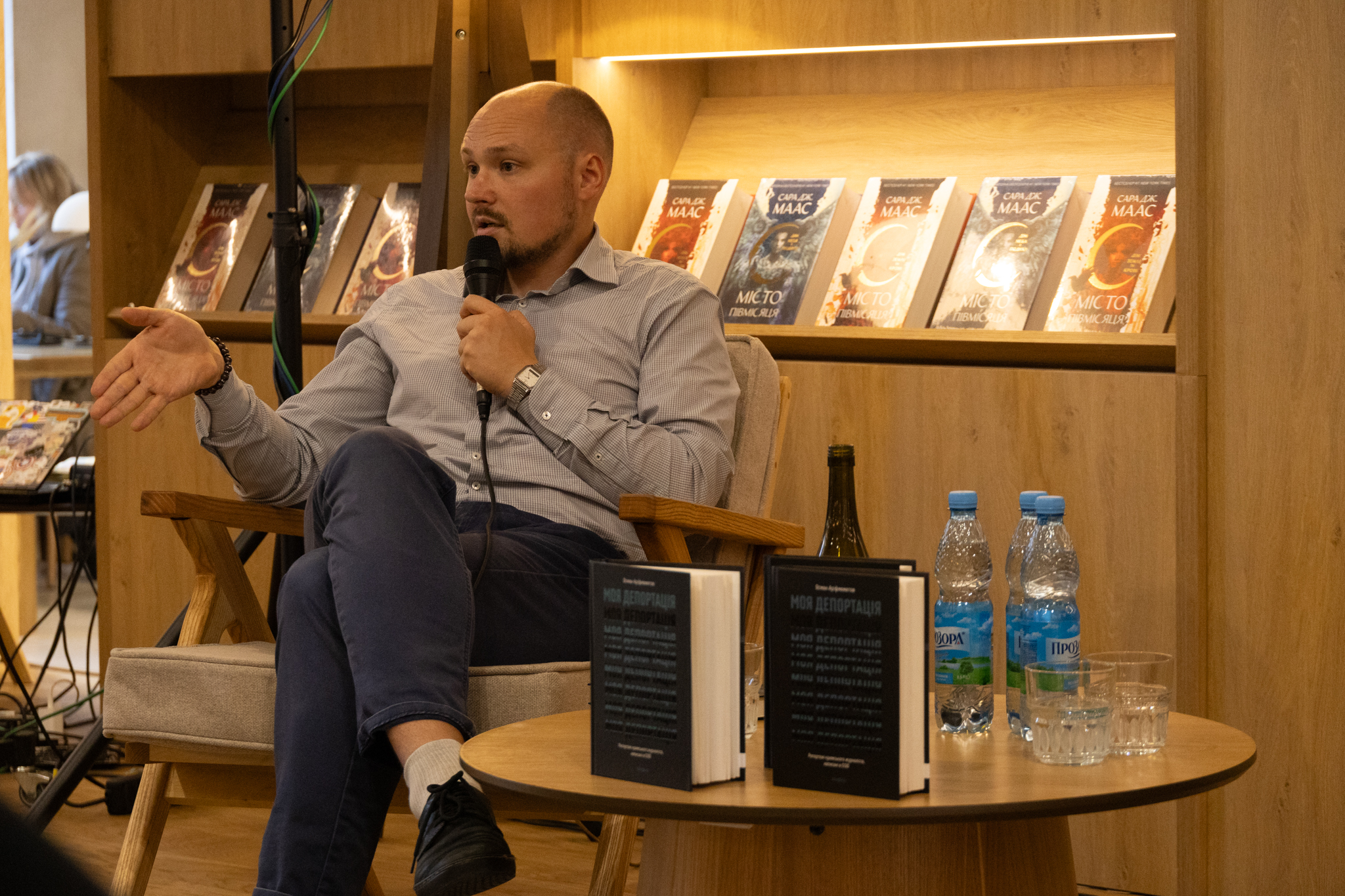 Yevhen Bondarenko. Photo credit: Mission of the President in the Autonomous Republic of Crimea
Yevhen Bondarenko. Photo credit: Mission of the President in the Autonomous Republic of CrimeaViktoriia Nesterenko focused on the history of the book’s creation, “My Deportation,” and stated that the idea to publish the book originated when Osman began sending his first testimonies from prison. She emphasised that these texts are not only documentary evidence, but also literary works with deep irony and a sense of absurdity.
“The publication of this book has been a significant source of moral support for both Osman himself and his family. We must let the Kremlin’s political prisoners know that we remember them and are fighting for them,” said Nesterenko, adding that the Human Rights Centre ZMINA regularly advocates for the return of Crimean political prisoners.
Nesterenko also mentioned the initiative “Letters to Free Crimea“, which was organised jointly with the Mission of the President of Ukraine in the Autonomous Republic of Crimea to support political prisoners and their families.
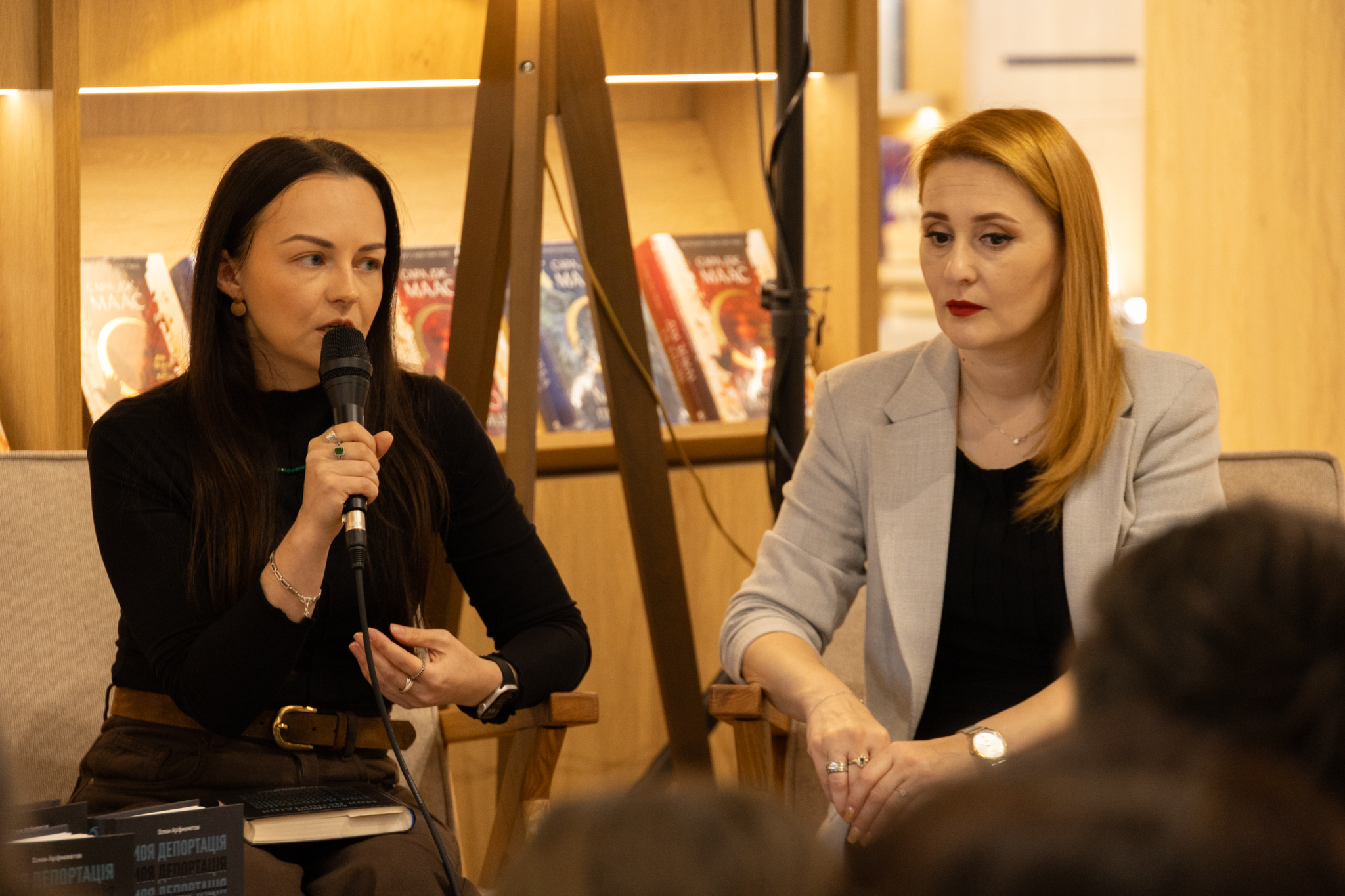 Viktoriia Nesterenko, Hulnara Abdulaieva. Photo credit: Mission of the President in the Autonomous Republic of Crimea
Viktoriia Nesterenko, Hulnara Abdulaieva. Photo credit: Mission of the President in the Autonomous Republic of CrimeaHulnara Abdulaieva emphasised during her speech that the persecution of Crimean Tatars has been going on for centuries: from the annexation of Crimea by the Russian Empire in 1783, through Stalin’s repressions and deportations in 1944, to the current occupation.
“Russia never changes its methods: it takes prisoners far away from home to isolate them from their families and make it easier to break them. Osman Arifmemetov is another victim of this practice, like many other Crimean Tatars,” said the historian.
She also emphasised that Crimean Tatar opinion leaders have always been the first target of Russian repression because they had authority in their community.
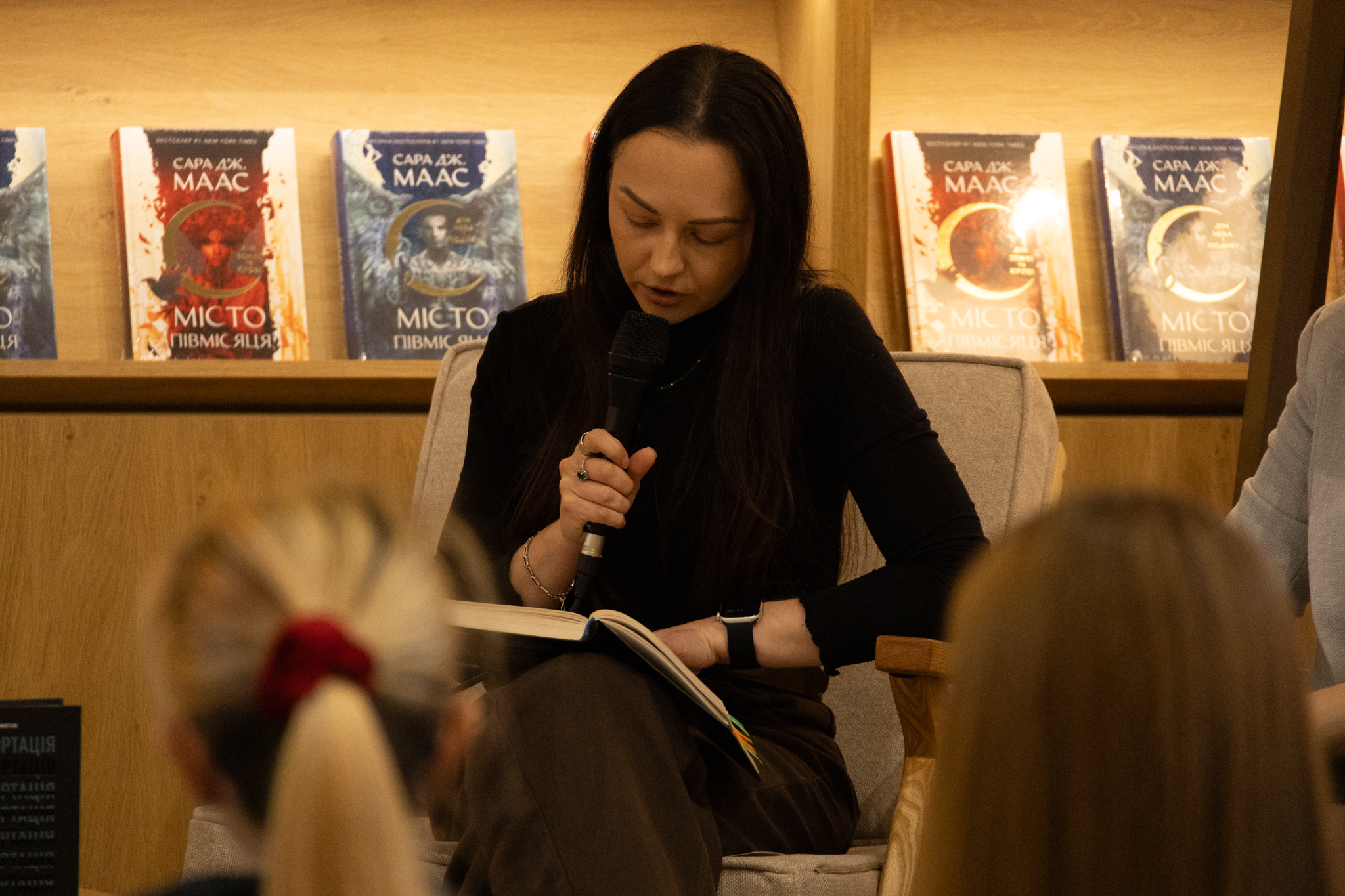 Viktoriia Nesterenko. Photo credit: Mission of the President in the Autonomous Republic of Crimea
Viktoriia Nesterenko. Photo credit: Mission of the President in the Autonomous Republic of CrimeaThe book is available for order in both print and electronic formats:
Print version: Here
E-book version: Here
The book is also available for purchase in bookstores.
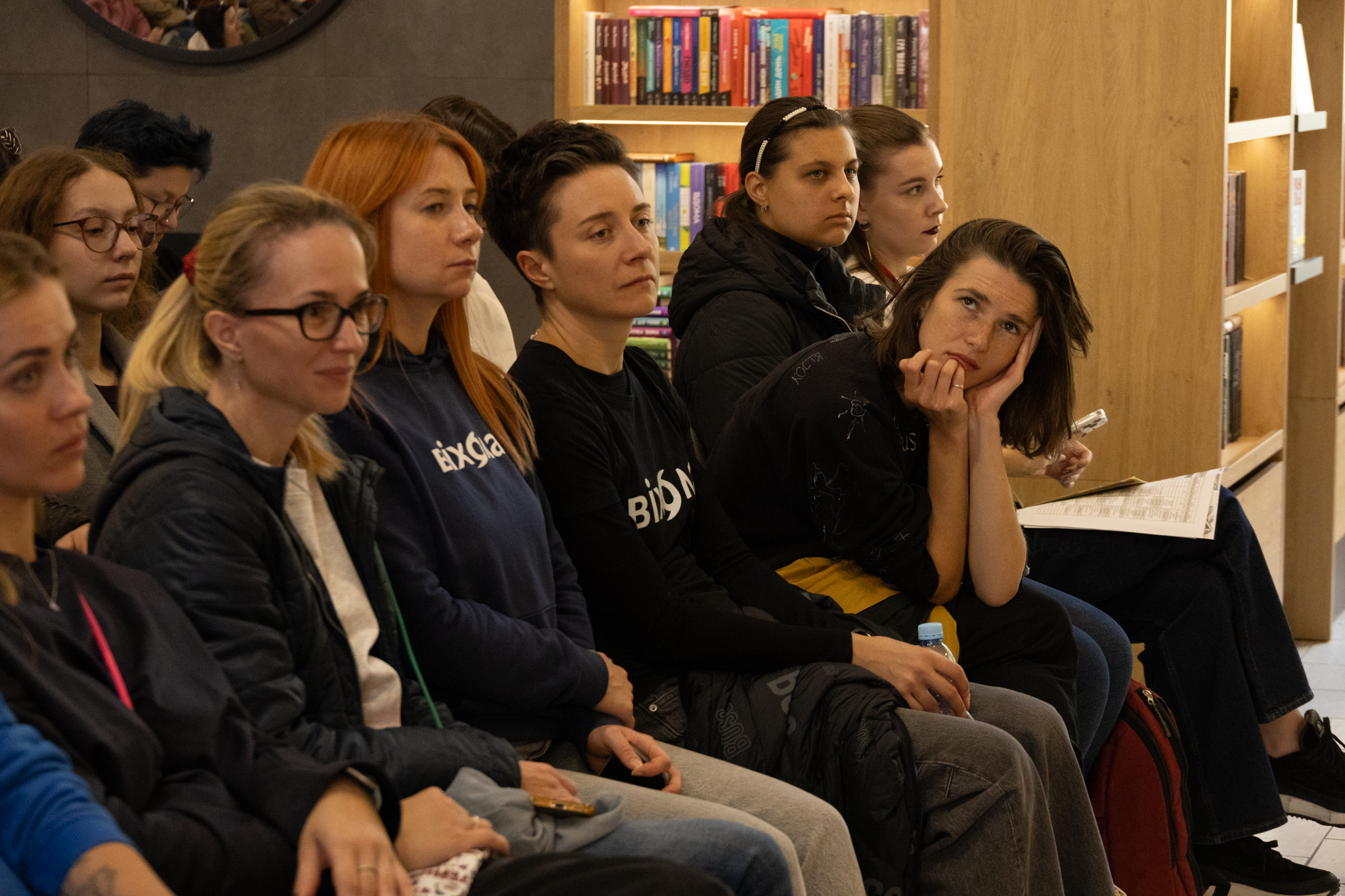 Photo credit: Mission of the President in the Autonomous Republic of Crimea
Photo credit: Mission of the President in the Autonomous Republic of CrimeaThis publication was made possible through the cooperation between the publishing house Vikhola and the Human Rights Centre ZMINA, with financial support from the Ministry of Foreign Affairs of the Czech Republic as part of the Transition Promotion Program. The views expressed in this material belong to the authors and do not reflect the official position of the Ministry of Foreign Affairs of the Czech Republic.
If you have found a spelling error, please, notify us by selecting that text and pressing Ctrl+Enter.







